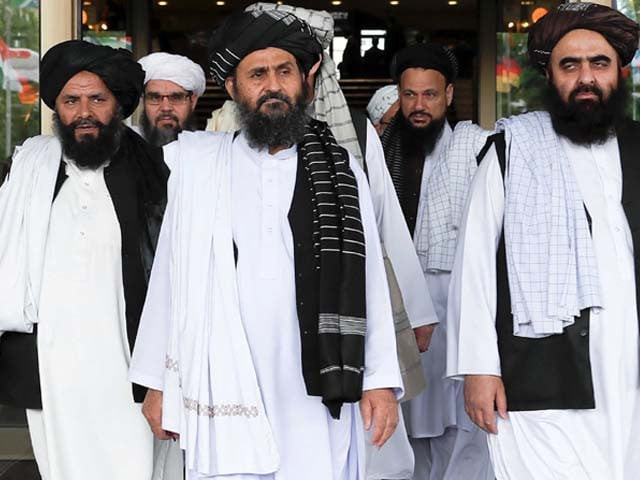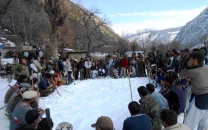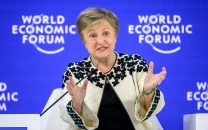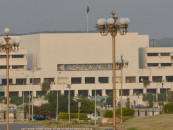UN Doha huddle delivers clear message to Taliban regime
Conference concludes without an agreement on proposal regarding appointment of UN special envoy for Afghanistan

A UN conference held in Doha on Monday delivered a clear message to the Afghan Taliban that any international recognition would require the de facto authorities in Kabul to fulfil key conditions that include not allowing the Afghan soil to be the “hotbed” of terrorist activities, inclusive government and respecting the human rights particularly the rights of women and girls.
However, the two-day conference concluded in the Qatari capital without an agreement on the proposal regarding the appointment of a UN special envoy for Afghanistan.
The conference was convened by the UN Secretary-General Antonio Guterres and attended by special envoys from 25 countries including Pakistan. A group of civil society activists including women representatives of Afghanistan were also in attendance.
Read more: Pakistan to back UN special envoy on Afghanistan as Doha conference begins
The Afghan Taliban skipped the crucial meeting, voicing concerns over the invitation to its opponents and the agenda of the meeting. The absence of the Taliban representative seems to have delayed the decision on the appointment of a UN special envoy for Afghanistan.
Guterres told reporters in Doha that it was decided that he would initiate consultations on the proposal. The decision to appoint the UN special envoy would be taken in consultations with stakeholders and the de facto Afghan authorities, he added.
The proposal to appoint a UN special envoy was part of the recommendation submitted to the UN Security Council by a special coordinator in November.
The UNSC adopted the resolution in December, endorsing the move. But two key players and veto-wielding powers including Russia and China abstained from the process.
Also read: Has China formally recognised Taliban govt in Afghanistan?
Russia declined to attend the civil society session, backing the Afghan Taliban stance that the selection of Afghan representatives should have been done more transparently.
Pakistan, meanwhile, supported the idea of inviting Afghan civil society activists and at the same time the proposal to appoint a UN special envoy on Afghanistan.
Islamabad’s stance was in direct conflict with the Afghan Taliban’s position, who vehemently opposed the move.
The UN chief said that there was complete consensus during the conference on a number of issues. He maintained that all countries agreed that Afghanistan should not be allowed to become a hotbed of terrorist activities again.
He said that participants of the conference agreed that there had to be inclusive government and respect for human rights including women and girls.
Without progress on these critical issues, the international integration of Afghanistan under Taliban rule would be a daunting task.
The UN Secretary General said that despite reservations by the Taliban the current format would remain in place and the group would meet often to have more coordinated international efforts on Afghanistan.
The UN chief also proposed the contact group comprising immediate neighbours of Afghanistan and other stakeholders.
He said that the purpose of the process was to develop a roadmap where Afghanistan was integrated into the international system with the Taliban government addressing key areas of concern of the international community.



















COMMENTS
Comments are moderated and generally will be posted if they are on-topic and not abusive.
For more information, please see our Comments FAQ